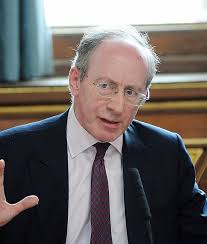The Political Legacy of Malcolm Rifkind

Introduction
Malcolm Rifkind, a significant name in British politics, has had a substantial influence on the United Kingdom’s political landscape. A former Foreign Secretary and Defence Secretary, Rifkind’s career spanned over three decades and included numerous key roles within the British government. As the nation navigates contemporary challenges, reflecting on Rifkind’s contributions provides important insights into political strategy, governance, and diplomacy.
A Career in Politics
Sir Malcolm Rifkind began his political journey as a Member of Parliament (MP) for Edinburgh Pentlands in 1974. His rise through the Conservative Party was marked by various ministerial positions. His notable role as Secretary of State for Defence from 1992 to 1995 saw him overseeing critical military operations and defence policies during a transformative period for the UK. Later, as Foreign Secretary from 1995 to 1997, he played a key role in shaping the UK’s international relations, particularly post-Cold War.
Legacy and Influence
Rifkind’s influence extended beyond his tenure in office. He was instrumental in advocating for global security measures and contributed to policies that promoted international cooperation. His experience in foreign affairs remains relevant today as issues such as Brexit, security threats, and international trade continue to evolve. Furthermore, his ability to navigate complex political landscapes has made him a respected voice in discussions about contemporary governance.
Recent Developments
Recently, Malcolm Rifkind’s insights have been sought in relation to current geopolitical tensions, particularly concerning the UK’s stance on NATO and international trade post-Brexit. His perspectives on diplomacy and defence strategies offer valuable lessons for policymakers grappling with similar issues today. In a series of interviews and public discussions, he has emphasised the importance of maintaining robust relationships with allies while addressing domestic concerns.
Conclusion
Malcolm Rifkind’s career is a testament to the impact one individual can have on national and international levels. As the UK faces unprecedented challenges, understanding his political strategies and methodologies is vital for future leaders. His legacy serves as a guide for effective governance, highlighting the necessity of balancing domestic priorities with global responsibilities. Rufkind’s insights continue to shape discussions, ensuring his political legacy endures in the evolving narrative of British politics.



